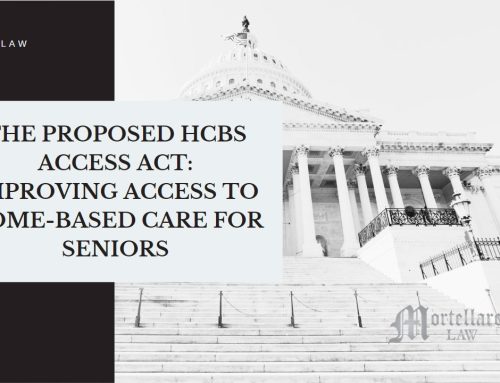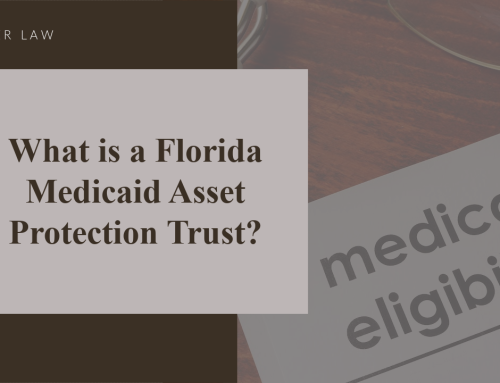Not familiar with Medicaid Benefits? Let’s say Mom, a retired widower, is getting on in years. The winter holidays come, and you and your brother visit from your homes in other states. You see that she is struggling to walk, to dress herself, to cook and keep up with everything around the house. You’re in agreement: She needs help. You both would feel better if Mom had in-home assistance for a few hours every day to assure her well-being. Because Mom is only getting Social Security and a small pension as income, she believes she can’t afford the extra help. You and your brother support families so helping her puts a strain on your own finances. What can you do? Medicaid assistance is the answer, but what will it take to get there?
Healthcare eligibility
There are two parts to Medicaid benefits qualifying in Florida. The first is having Mom’s healthcare assessed. In each county in Florida, there is an agency that helps determine a person’s needs. This is often referred to as a “level of care.” Once contacted, this local agency will schedule a phone call assessment with either Mom or you. The interviewer will ask a set of questions regarding her health and financial assistance needs. If the interviewer determines there are sufficient needs, he or she will rank Mom as high priority for immediate funding, or if Mom did not rank high, she may have to wait a month or longer until funding is available. Once that funding for Mom’s ranking is OK’d, she moves on to the next step.
That local agency will send out a form to be completed by Mom’s doctor. The doctor will make a recommendation about Mom’s health and assistance needs. That form goes back to the local agency, which processes it with the state.
As the process continues, eventually there will be a face-to-face assessment between an interviewer from another state agency and Mom. Based on this meeting, Mom will be assigned a level of care for services. As this part of the process nears its end, you and Mom will pick from a list of agencies that provide care services suitable for her needs.
Financial eligibility for Medicaid Benefits
A second part to Medicaid Benefits is financial eligibility, and it picks up about the time the doctor is filling out the assessment form. In this phase, the state examines Mom’s financial picture: monthly income and sources, retirement accounts, life insurance policies, annuities, real estate, etc. Each state’s income and assets limits vary and may even change from year to year.
Mom will be asked to produce photo identification, proof of her gross income from Social Security and the pension. She must also show several months of bank statements, and other documentation related to her assets. She may have to explain any large checks coming in or going out. Once the state determines she falls within the Medicaid benefit program’s limits, Mom gets final approval for funding.
Getting Over Hurdles
Navigating income and asset limits is the most confusing and complex part of the Medicaid process. An experienced attorney who works in this area of law can use certain tools to help Mom qualify.
At Mortellaro Law, we offer free, no-obligation initial consultations, so it costs you nothing to learn about what options may be available to you or your loved ones.






